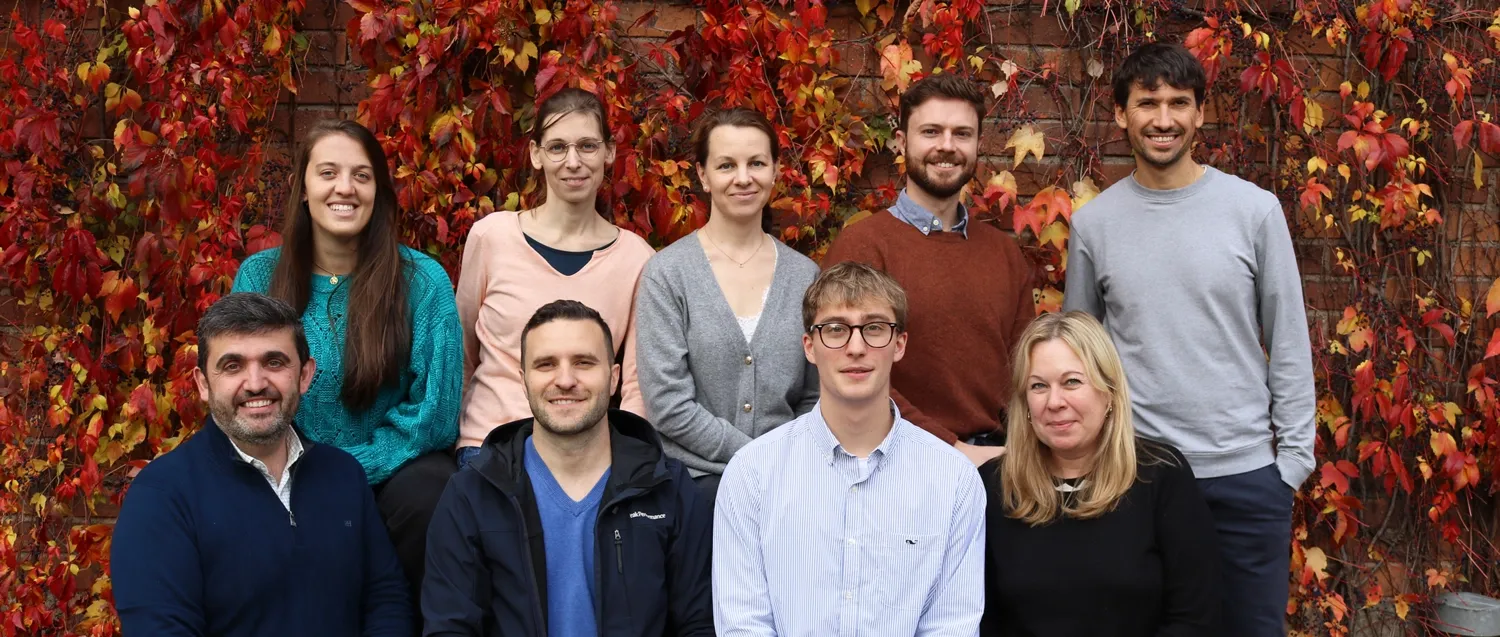Our research
We are a multidisciplinary team of epidemiologists, statisticians, pharmacists and physicians, currently working on five main research lines.
Optimizing Knowledge of Treatment Effects
We apply modern causal inference methods to estimate the real-world safety and effectiveness of medications and treatment strategies in diverse patient populations. We also explore heterogenous treatment effects using causal machine learning, to determine which patients are most likely to benefit from specific therapies.
Recent publications:
- Huang T, Bosi A, Faucon AL, et al. GLP-1RA vs DPP-4i Use and Rates of Hyperkalemia and RAS Blockade Discontinuation in Type 2 Diabetes. JAMA Intern Med. Published online August 12, 2024. doi:10.1001/jamainternmed.2024.3806
- Bosi A, Clase CM, Ceriani L, et al. Absolute and Relative Risks of Kidney Outcomes Associated With Lithium vs Valproate Use in Sweden. JAMA Netw Open. 2023;6(7):e2322056. doi:10.1001/jamanetworkopen.2023.22056
- Faucon AL, Fu EL, Stengel B, Mazhar F, Evans M, Carrero JJ. A nationwide cohort study comparing the effectiveness of diuretics and calcium channel blockers on top of renin-angiotensin system inhibitors on chronic kidney disease progression and mortality. Kidney Int. 2023;104(3):542-551. doi:10.1016/j.kint.2023.05.024
- Xu H, Garcia-Ptacek S, Bruchfeld A, et al. Association between cholinesterase inhibitors and kidney function decline in patients with Alzheimer's dementia. Kidney Int. 2023 Jan;103(1):166-176. doi: 10.1016/j.kint.2022.09.022.
- Xu Y, Fu EL, Clase CM, et al. GLP-1 receptor agonist versus DPP-4 inhibitor and kidney and cardiovascular outcomes in clinical practice in type-2 diabetes. Kidney Int. 2022 Feb;101(2):360-368. doi: 10.1016/j.kint.2021.10.033
Risk-Based Clinical Decision Support
We aim to understand factors that accelerate the occurrence of worse clinical outcomes, and improve current risk prediction models used for severity stratification, and develop new tools to guide care decisions using individualized risk prediction.
Recent publications:
- Caldinelli A, Faucon AL, Sjölander A, et al. Risk-based referral model to nephrologist-specialist care in Stockholm. Nephrol Dial Transplant. Published online July 9, 2025:gfaf128. doi:10.1093/ndt/gfaf128
- Mazhar F, Faucon AL, Fu EL, et al. Systemic inflammation and health outcomes in patients receiving treatment for atherosclerotic cardiovascular disease. Eur Heart J. 2024;45(44):4719-4730. doi:10.1093/eurheartj/ehae557
- Andersson-Emad J, Thunholm A, Nash S, et al. Study protocol of the ALMA-CKD trial; an electronic triggering decision-support system to improve the detection, recognition, and management of patients with chronic kidney disease in primary care. BMC Nephrol. 2024;25(1):408. doi:10.1186/s12882-024-03852-z
- Mahalingasivam V, Faucon AL, Sjölander A, et al. Kidney Function Decline After COVID-19 Infection. JAMA Netw Open. 2024 Dec 2;7(12):e2450014. doi: 10.1001/jamanetworkopen.2024.50014.
Improving Estimation of Kidney Function
We investigate how different equations and biomarkers used to estimate glomerular filtration rate influence its precision, clinical decision-making or outcomes across diverse populations.
Recent publications:
- Russel WA, Fu EL, Bosi A, et al. Obesity, Underweight, and Accuracy of eGFR Using Cystatin C and Creatinine in a Northern European Population. J Am Soc Nephrol. Published online June 13, 2025. doi:10.1681/ASN.0000000760
- Russel WA, Fu EL, Creon A, et al. Changing from the CKD-EPI to the EKFC creatinine equation to estimate glomerular filtration rate in adults in a Northern European health system. Nephrol Dial Transplant. Published online August 11, 2025:gfaf148. doi:10.1093/ndt/gfaf148
- Fu EL, Carrero JJ, Sang Y, et al. Association of Low Glomerular Filtration Rate With Adverse Outcomes at Older Age in a Large Population With Routinely Measured Cystatin C. Ann Intern Med. 2024 Mar;177(3):269-279. doi: 10.7326/M23-1138.
- Fu EL, Levey AS, Coresh J, et al. Accuracy of GFR Estimating Equations in Patients with Discordances between Creatinine and Cystatin C-Based Estimations. J Am Soc Nephrol. 2023 Jul 1;34(7):1241-1251. doi: 10.1681/ASN.0000000000000128.
- Carrero JJ, Fu EL, Sang Y, et al. Discordances Between Creatinine- and Cystatin C-Based Estimated GFR and Adverse Clinical Outcomes in Routine Clinical Practice. Am J Kidney Dis. 2023 Nov;82(5):534-542. doi: 10.1053/j.ajkd.2023.04.002.
Identifying and Addressing Care Gaps
We evaluate disparities in the clinical management of kidney and cardiovascular diseases, quantify their impact on outcomes, and assess targeted interventions to improve them.
Recent publications:
- Creon A, Faucon AL, Caldinelli A, et al. Care processes and clinical responses to newly detected albuminuria; the Stockholm CREAtinine Measurements (SCREAM) project. American Journal of Kidney diseases. 2025, In press.
- Swartling O, Yang Y, Clase CM, et al. Sex Differences in the Recognition, Monitoring, and Management of CKD in Health Care: An Observational Cohort Study. Journal of the American Society of Nephrology. 2022;33(10):1903. doi:10.1681/ASN.2022030373
- Xu Y, Evans M, Mazhar F, et al. Poor recognition and undertreatment of anemia in patients with chronic kidney disease managed in primary care. J Intern Med. 2023 Nov;294(5):628-639. doi: 10.1111/joim.13702
- Mazhar F, Sjölander A, Fu EL, et al. Estimating the prevalence of chronic kidney disease while accounting for nonrandom testing with inverse probability weighting. Kidney Int. 2023 Feb;103(2):416-420. Doi: 10.1016/j.kint.2022.10.027
Individualising health trajectories of chronic kidney disease etiologies
We explore the association of specific kidney diseases with health outcomes, beyond estimated glomerular filtration rate and albuminuria levels.
Recent publications:
- Chrysostomou C, Faustini F, Segelmark M. Risk of severe infection and infection-related mortality in CKD-patients with lupus nephritis in comparison to other CKD etiologies a nationwide cohort study. Kidney International, In Press
- Faucon AL, Lundberg S, Lando S, et al. Albuminuria predicts kidney events in IgA nephropathy. Nephrol Dial Transplant. Published online April 30, 2024. doi:10.1093/ndt/gfae085
- Faucon AL, Lando S, Chrysostomou C, et al. Primary glomerular diseases and long-term adverse health outcomes: A nationwide cohort study. J Intern Med. 2025 Jan;297(1):22-35. doi: 10.1111/joim.20024


